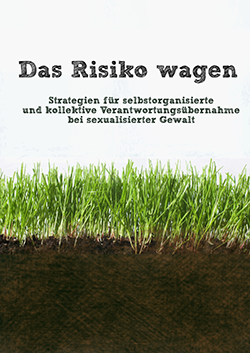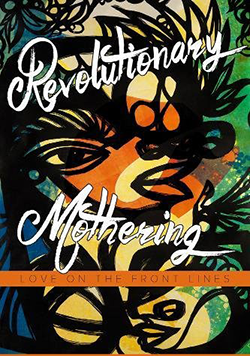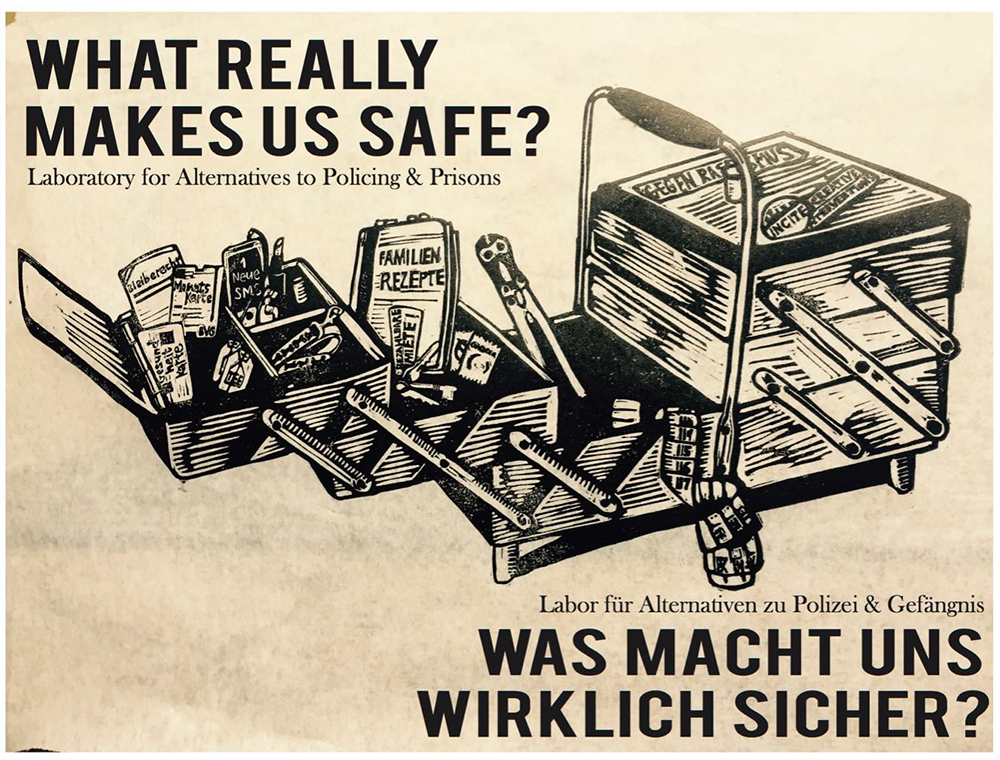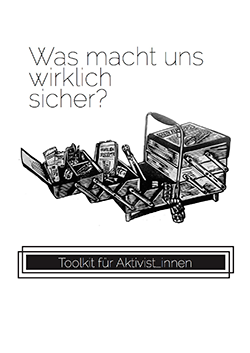Lab for Alternatives
For many marginalized people, calling the police is not an option. In our event in 2017, we asked ourselves: when violence occurs, what lies beyond the prison and the border? What could make all of us safe? In our “Lab for Alternatives”, we turned towards community-based alternatives and draw inspiration from the transformative justice & community accountability models developed by women of color and trans and queer folks of color in the U.S.
Our ‘laboratory’ mixed various modes – visual, aural, spoken, heard, read – to immerse ourselves sci-fi style in the land of utopian alternatives. Olivia Oyama, Andrea Marcos, and Zoya Honarmand used art to explore their ‘healing archives’ of intergenerational and community resilience. Activist and author Mai’a Williams shared 20 years of experience with community accountability processes. We also celebrated the publication of the “What really makes us safe?” Toolkit and inaugurate the accompanying website, made up of interviews with transformative justice activists. Transformative Justice Kollektiv Berlin also handed out copies of their translation zine, “Das Risiko wagen. Strategien für selbstorganisierte und kollektive Verantwortungsübernahme bei sexualisierter Gewalt.”
At the end of the night, we joined members of the Berlin Muslim Feminist Roundtable in an Iftar meal to celebrate Ramadan.
The Lab included an exhibition, "Healing Archives":
Publications

The German language translation of one of the founding texts of community accountability from Communities Against Rape and Abuse (CARA), with an introduction from the Transformative Justice Collective Berlin.

Guest Mai’a Williams spoke about revolutionary mothering and her new anthology, and its intersections with community accountability.





